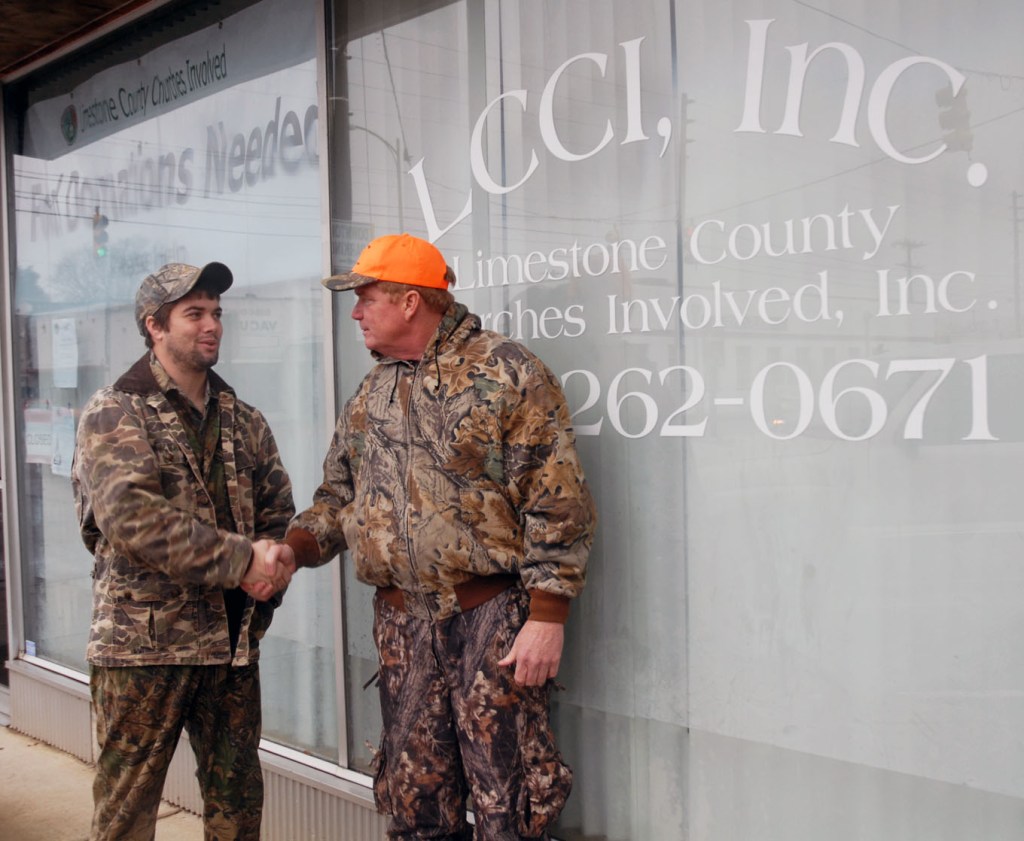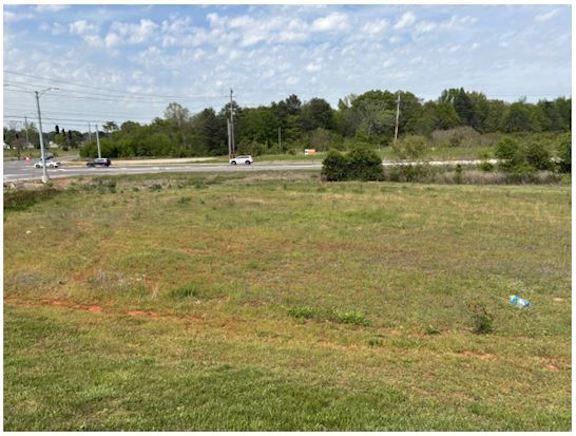Iron-rich venison could benefit area’s hungry families
Published 3:00 pm Sunday, January 15, 2012

- The Alabama Department of Conservation and Natural Resources and its foundation are asking hunters to donate legally harvested deer to selected deer processors, who will then turn it over to Limestone County Churches Involved food pantry. Two local hunters, Caleb Black, left, and Sanders Woodroof, are committed to the Hunters Helping the Hungry program.
There seems to be a deer population explosion in North Alabama and across the country. Deer are annually harvested by sportsmen, which helps to control their numbers. But what becomes of the iron-rich meat from these animals if the hunters do not use it?
Trending
Limestone County Churches Involved is participating in the Hunters Helping the Hungry Program, which is requesting the many local hunters to help answer the nutritional needs of the area’s hungry families by donating their processed venison.
According to the website, whfoods.org, venison is an excellent source of protein, while, unlike most meats, it tends to be fairly low in fat, especially saturated fat. Four ounces of venison supplies 82 percent of the daily value for protein for only 179 calories and 2.2 grams of saturated fat.
Venison is a good source of iron, providing 28.2 percent of the daily value for iron in that same four-ounce serving. Particularly women in their childbearing years, who are more at risk for iron deficiency, boosting iron stores is a good idea – especially because, in comparison to beef, venison provides well-absorbed iron for less calories and fat. Iron is an integral component of hemoglobin, which transports oxygen from the lungs to all body cells, and is also part of key enzyme systems for energy production and metabolism.
The needs for iron increase in pregnant or lactating women. Growing children and adolescents also have increased needs for iron.
The Alabama Department of Conservation and Natural Resources and its foundation are asking hunters to donate legally harvested deer to selected deer processors. Funds to pay for the processing are provided by the Department of Conservation and Natural Resources Foundation.
Processors who have agreed to participate in the program will accept legally donated, field-dressed — entrails removed — deer up to a specified limit.
Trending
Hunters donating field-dressed meat should not be charged a skinning fee. Hunters donating deer that have not been field-dressed might be charged a nominal fee.
No anonymous donations will be accepted. All hunters must complete provided donation forms, which may be copied with one copy going to LCCI and the other to remain with the processor’s records.
The processor then will then provide ground meat with no additives in a package and wrap suitable for freezing in weights of 2-to-4 pounds labeled “Venison Meat, No Additives, Not for Resale.”
The processor then notifies the LCCI, which will pick up the packaged meat for distribution to needy families.
This is a list of the approved area processors who are participating in Hunters Helping the Hungry Program:
• Bart Brewer, Brewer Deer Processing, 1130 Manley Road, Hazel Green, 256-417-7725
• Alton Jenkins, Jenkins Deer Processing, 493 Acuff Road, Gurley, 256-776-9662
• Jay Marks, Marksmen Processing, 3502 Hurricane Road, New Market, 256-679-1983
• Angela Martin, Martin’s Deer Processing, 731 Hillsboro Circle, New Market, 256-379-5586
• Bill Phillips, Rocket City Meats, 2203 Meridian Street N., Huntsville, 256-533-9744
• Brad Wilson, Wilson’s Deer Processing, 812 Borderline Road, Hazel Green, 503-5895
LCCI volunteer Ida Terry said that while the local deer hunting season is nearly at a close, there are still nearly two weeks to participate in this program.
“If you know of hunters who may be willing to help with this very worthwhile program, will you please ask them to get in touch with me at 256-232-6077 or email me at idaho2@charter.net,” said Terry. “I will provide them with a list of processors approved by the Department of Conservation.”





